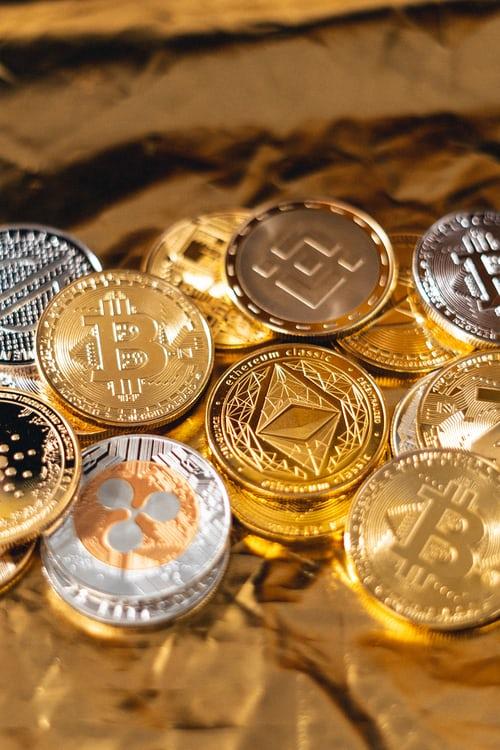There's a lot of technical lingo to wrap your head around, especially when it comes to bear markets. And it might be confusing to try and understand all the terms out there, given that some definitions may even contradict each other. So we've compiled a list of key jargon you may come across!
- Altcoin: Altcoin is a term used to describe all cryptocurrencies that are not Bitcoin.
- Bagholder: A bagholder is someone who HODLs onto a coin even when it's losing value, in the hope that it will rebound again.
- Bear Market: A bear market is when the price of an asset falls by 20% or more from its recent high.
- Bears: Bears are investors who think the market is going to crash and prices will go down. They tend to sell off their assets before this happens.
- Bull Market: A bull market is when the price of an asset rises by 20% or more from its recent low.
- Bulls: Bulls are investors who think the market is going to rise and prices will go up. They tend to buy assets when prices are low in anticipation of this.
- Dead Cat Bounce: A dead cat bounce is when an asset's price temporarily rises after a period of decline.
- Death cross: A death cross is when the price of an asset's 50-day moving average falls below its 200-day moving average. This is often seen as a bearish sign and can indicate that prices are going to continue falling.
- FOMO: FOMO stands for fear of missing out. It's the feeling of anxiousness that comes from thinking you're going to miss out on a good investment opportunity. Use changelly.com to avoid this feeling and make profitable transactions.
- FUD: FUD stands for fear, uncertainty, and doubt. It's when negative news or sentiment spreads about a particular asset, leading to its price dropping.
- Golden cross: A golden cross is when the price of an asset's 50-day moving average rises above its 200-day moving average. This is seen as a bullish sign and can indicate that prices are going to start rising.
- HODL: HODL is a meme that originated on a Bitcoin forum in 2013. It simply means holding onto your assets even when the market is crashing, instead of selling in panic.
- Liquidation: Liquidation is when an asset is sold off in order to pay off debts. This often happens when the asset's price has fallen so low that the owner can no longer afford to keep it.
- Margin call: A margin call is when a broker or exchange demands that an investor deposit more money into their account to cover losses. This can happen when the price of an asset falls and the investor has to sell it off at a loss in order to meet the margin call.
- Mooning: Mooning is when the price of an asset goes “to the moon” – in other words, it skyrockets in value.
- Pump and Dump: Pump and dump is when a group of people buys up a lot of a certain asset to artificially inflate its price, before selling it off at a profit when gullible investors jump on the bandwagon. This is often considered to be manipulation and is frowned upon in the crypto community.
- Shorting: Shorting is when an investor sells an asset they do not own in hopes of buying it back at a lower price, so they can profit from the difference. This can be done with futures contracts or by borrowing the asset from another investor.
- Stop-loss order: A stop-loss order is when an investor sets a price at which they will automatically sell an asset if it falls below that price. This is often used to limit losses in case the price of an asset starts to tumble.
- Technical analysis: Technical analysis is a way of predicting the future price of an asset by looking at its past price movements. This is often done with charts and can be used to identify patterns.
- Token: A token is a digital asset that is often used to represent something else. This can be anything from a currency to a commodity.
- Volatility: Volatility is a measure of how much the price of an asset fluctuates. Cryptocurrencies are notoriously volatile, with prices often swinging wildly up and down.
- Whales: Whales are large investors who can move the market with their trades. Because they hold such a large amount of an asset, they can sell it off and cause the price to crash.
It's critical to understand the key terms that traders and investors use to speak about a bear market, so with our list you're prepared.
Resources
